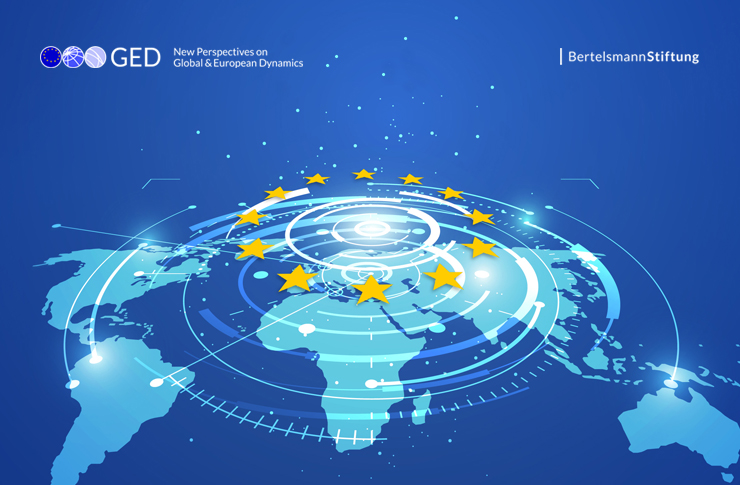
|
August 2022
Dear Readers,
Our August summer break edition of GED Monthly features analyses on the state of the euro – including Croatia‘s decision to join the single monetary zone – as well as on Europe’s digital sphere, as new EU legislation in this field steadily emerges.
Further topics include young European’s take on their future, as well as an analysis of the concept of "muddling-through", which our author deems to be the EU’s main approach to crisis management in turbulent times.
With warm wishes,
Stephan Vopel and Malte Zabel
Director and Co-Director
Europe’s Future Program
|
|
|
|
|
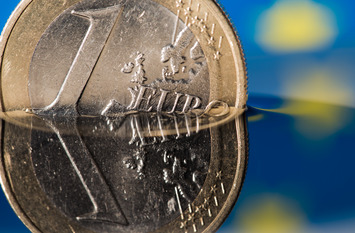
What a Weak Euro Means for Europe’s Economy
The euro’s value has fallen sharply against the dollar in recent months, sinking to the lowest exchange rate in 20 years. A weak euro helps European companies that sell their products in the US. But it also has serious disadvantages for the EU in the current economic situation. Above all, it accelerates inflation in the euro area. We set out reasons for this development, assess the pros and cons and consider EU policy options.
Read more
|
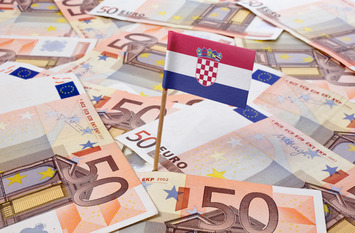
Croatia to Adopt the Euro Amidst New Turbulences
Long in the making, Croatia’s decision comes at a time when the Eurozone is facing new difficulties, notably high inflation and high debt following the pandemic and lower growth prospects in the wake of Russia’s war against Ukraine. Add to this the recent rise in bond spreads and new fears of fragmentation in Italy and the incomplete nature of the common currency that Croatia is set to join becomes clearer than ever.
Read more
|
|
|
|
|

Global Data Governance Needed to Tackle Injustices
In an interview with the Datasphere Initiative, a network that calls for a holistic and innovative view to data governance, Bertelsmann Stiftung’s Markus Overdiek describes current EU perspectives on the subject, analyses current power structures and points to good practices. He concludes by setting out his vision for the datasphere of the future, in which individuals, developing countries and the common good are centre-stage.
Read more
|

DMA/DSA: A Path to Digital Sovereignty?
Amid growing geopolitical tensions, the EU is looking to build up its sovereignty on the global stage. Yet as it seeks to become a technology leader, it must also manage supply shocks, act on security and defense matters whilst at the same time standing up for its values by defending multilateralism and building stronger partnerships. What role will the EU’s new flagship digital policies play in reaching these aims?
Read more
|
|
|
|
|
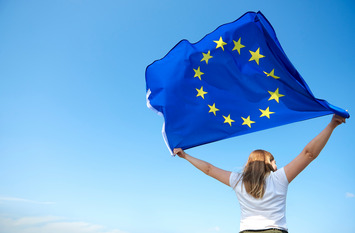
What Do Young Europeans Think About the EU?
While Covid-19 caused dramatic changes to everyone’s lives, young people were hit particularly hard by pandemic-related restrictions. They had to endure disruptions to their education, economic struggles due to job loss and mental health issues, to name just a few. Three years later, how do young Europeans see their personal situation? And what is their take on the European Union’s current state and future direction?
Read more
|
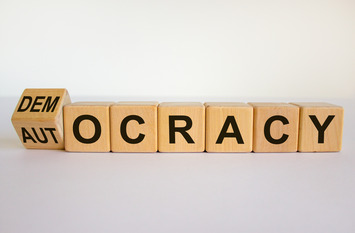
EU Crises: Will Muddling Through Be Enough?
Europe’s search for answers in what is arguably a third successive year of permanent crisis invites the question which forms of political crisis-management work and which ones do not. “Optimists and pessimists”, the “confidence trap” and “crisis jumping” feature in an analysis of the merits of “muddling-through”, a strategy which – counter-intuitively - requires European visions and high-levels of transparency to succeed.
Read more
|
|
|
|
|
>
In the next edition
|
|
|
|
We will be offering insights into the food crisis in Tunisia and also take a look at the UK’s levelling-up policy post-Brexit as a new Prime Minister takes charge.
To keep abreast of our work, please keep an eye on our blog: globaleurope.eu
Or follow us on social media: http://twitter.com/GED_Tweet
|
|
|
|
|
|
|
|
|
|
|
|